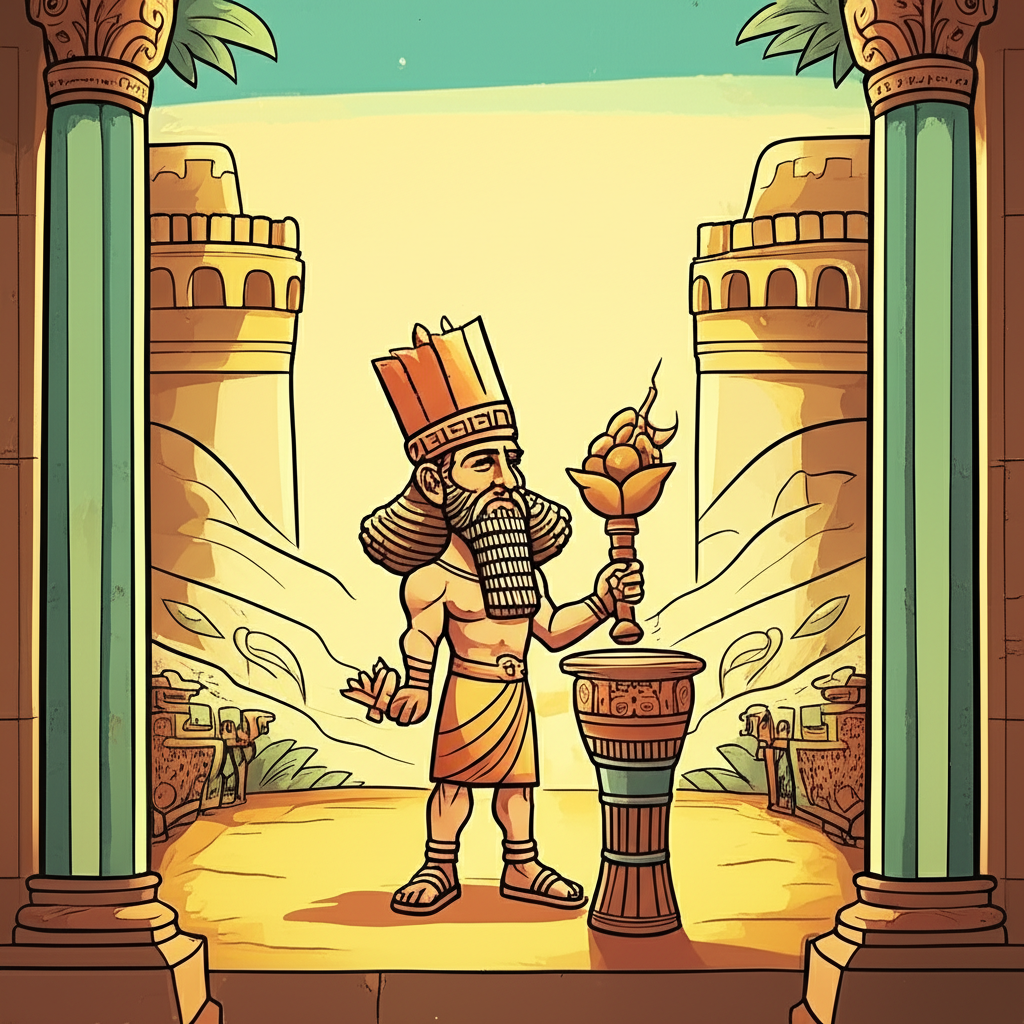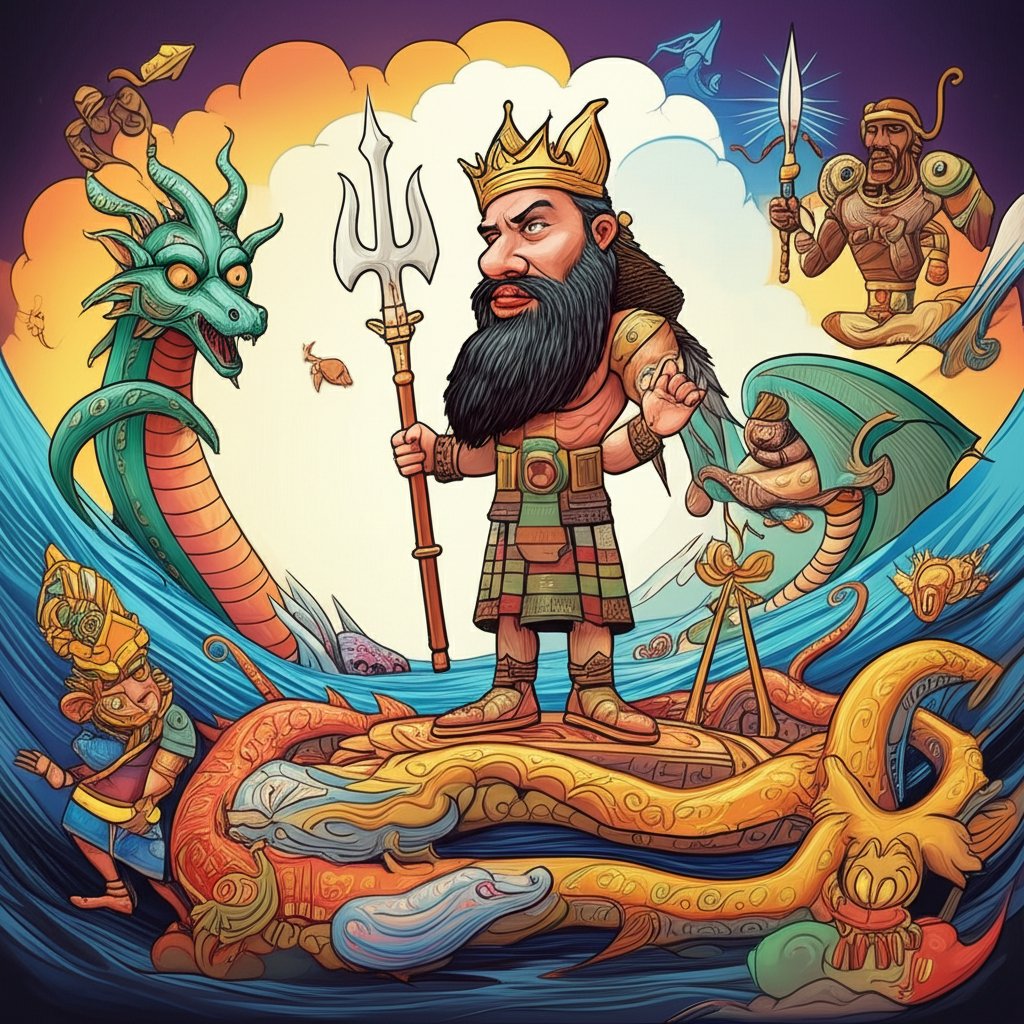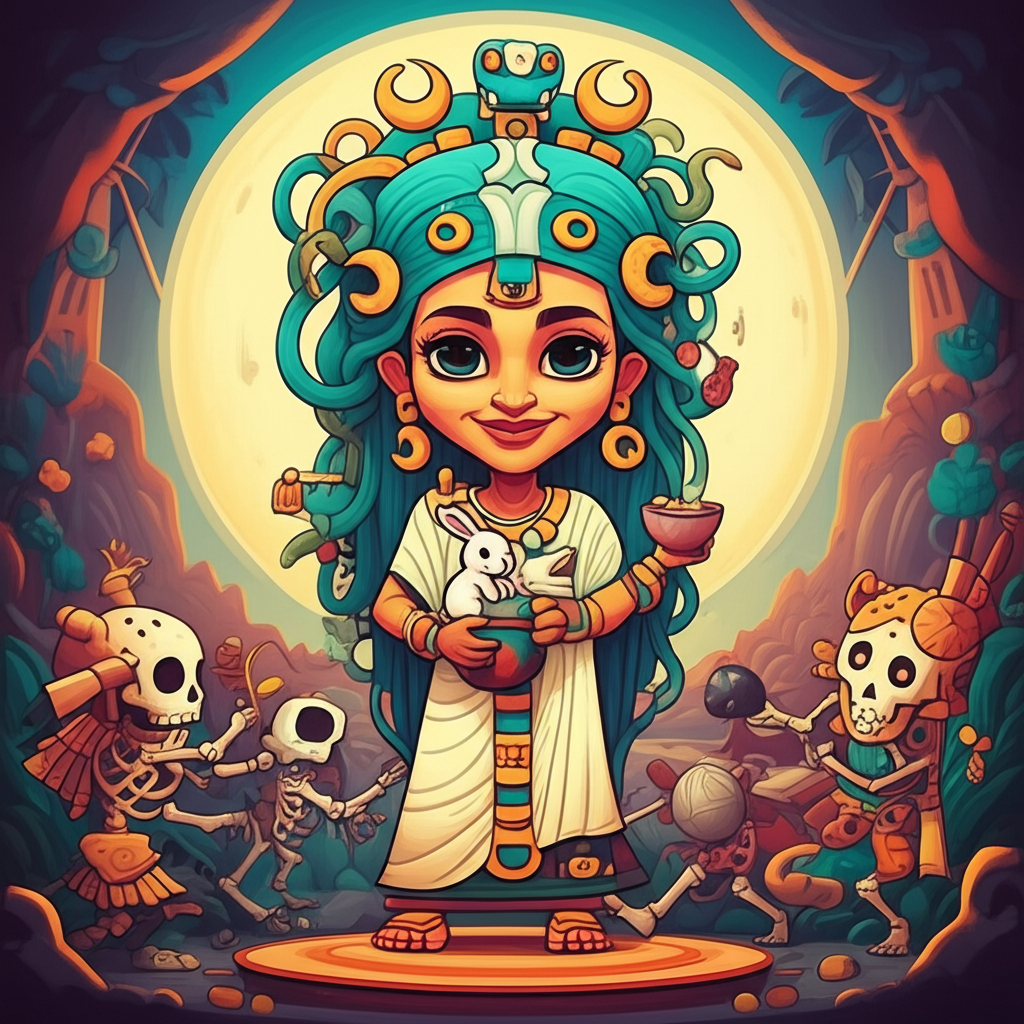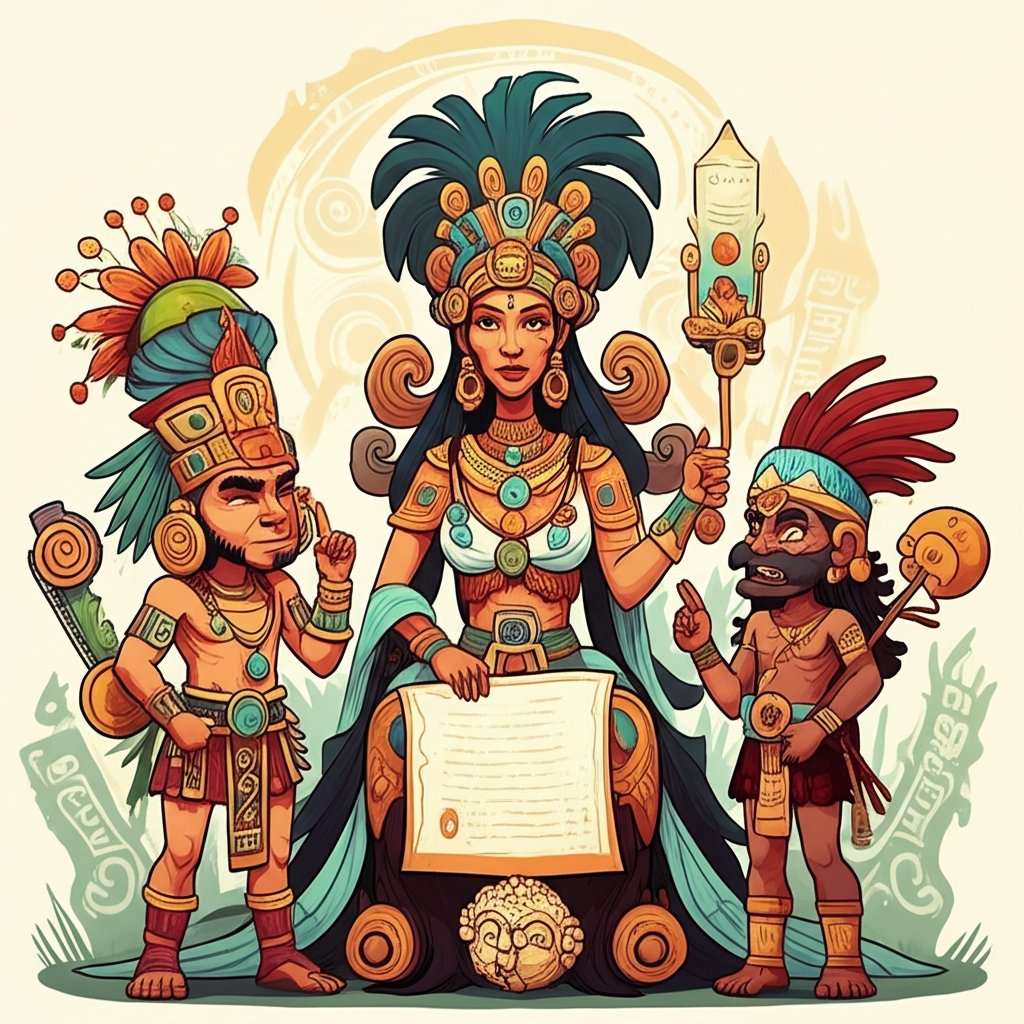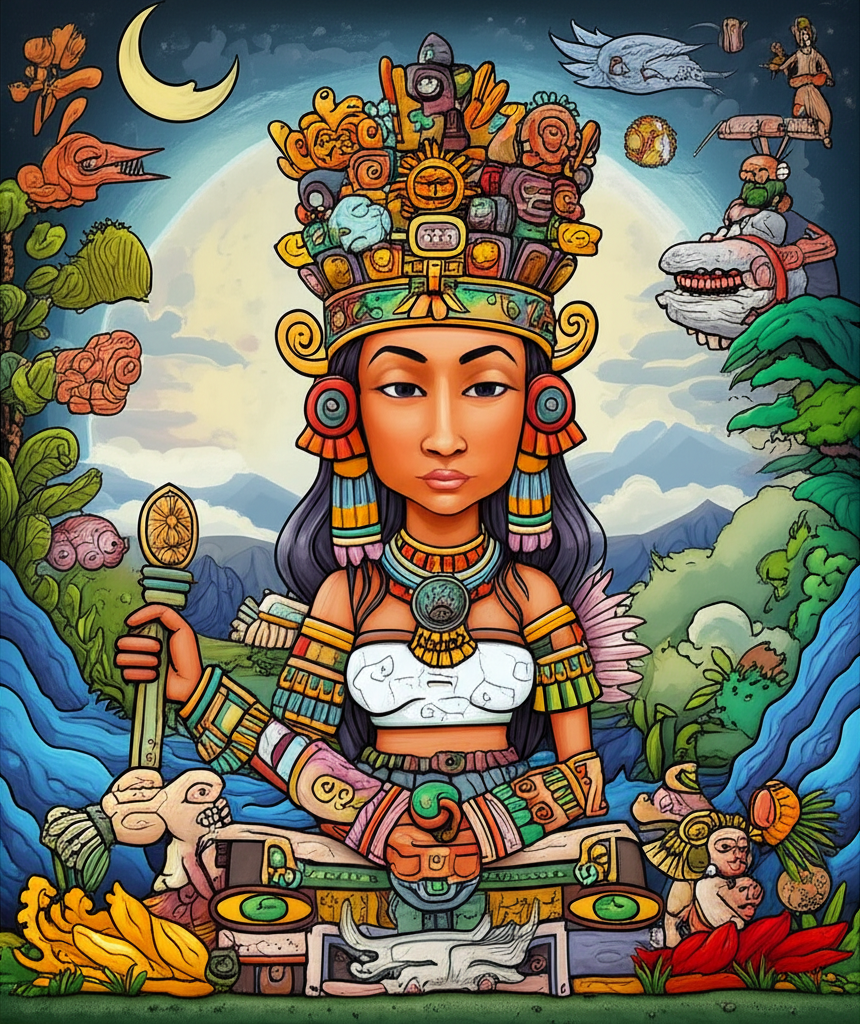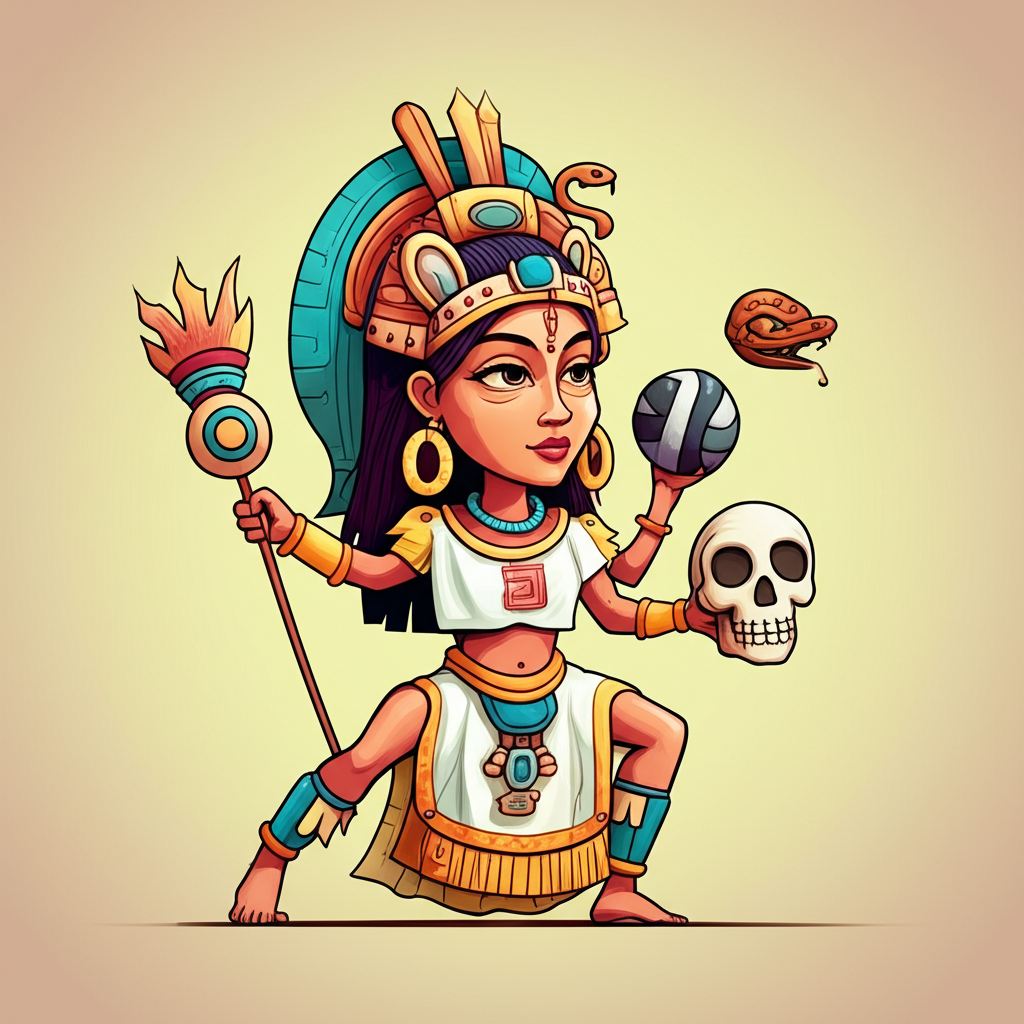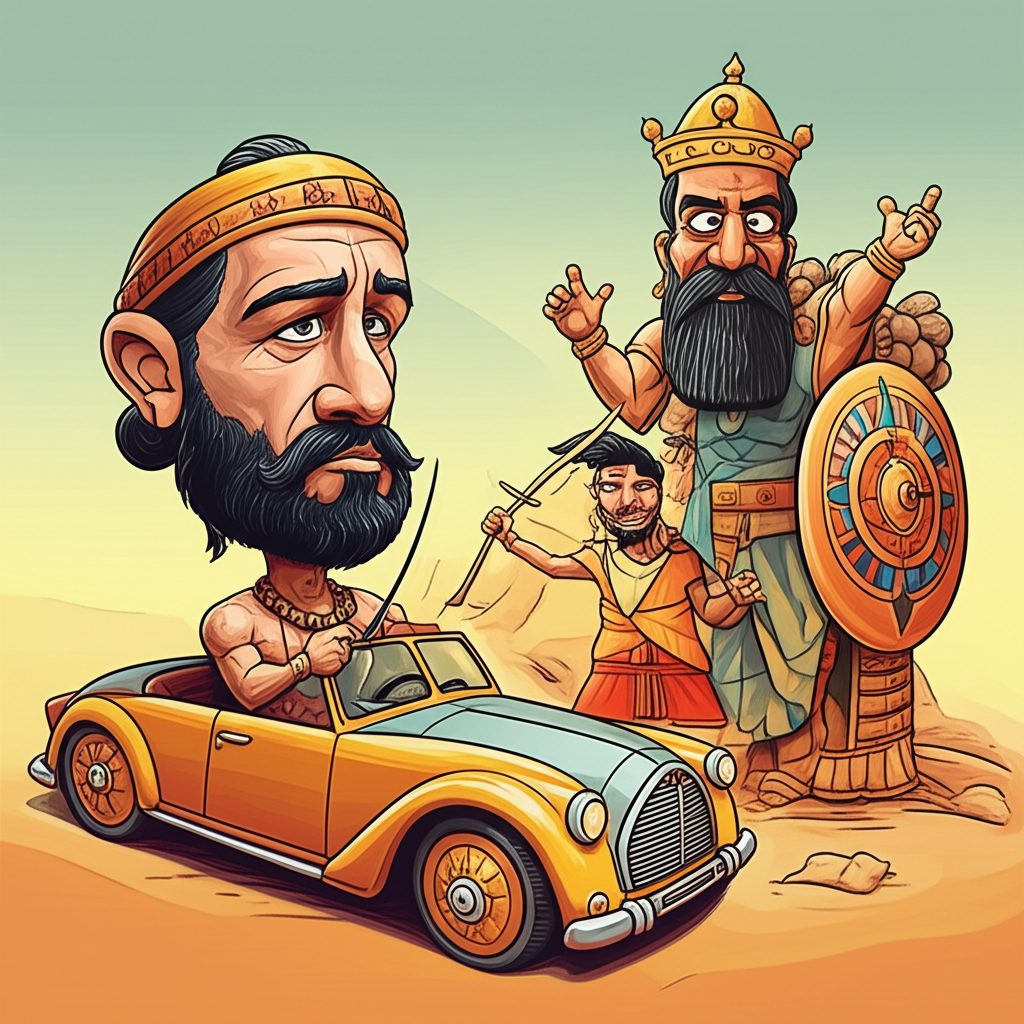
In the cradle of civilization, where the mighty Tigris and Euphrates rivers carved their life-giving paths through the arid landscape, an ancient people known as the Akkadians, and later the Sumerians and Babylonians, wove tales that have echoed through millennia. These were not accounts of historical fact, but rather the profound imaginings of a society grappling with the mysteries of existence, the nature of humanity, and the vast forces they perceived shaping their world. Among their most enduring narratives is the Epic of Gilgamesh, a saga that offers a vibrant window into the cultural tapestry of ancient Mesopotamia.
The land that birthed these stories, Mesopotamia, was a region of stark contrasts. Vast, sun-baked plains met fertile river valleys, where agriculture flourished and complex societies emerged. The people of this era lived under the shadow of immense natural phenomena – the unpredictable floods of the rivers, the scorching heat of the sun, the vastness of the night sky. Their worldview was deeply entwined with the divine; they believed powerful, often capricious, deities governed every aspect of life, from the harvest to the fate of kings. Their myths served as a way to understand these forces, to explain the inexplicable, and to impart moral lessons and societal values. The Epic of Gilgamesh, inscribed on clay tablets in cuneiform script, is a testament to this rich tradition of storytelling, a blend of myth, legend, and early forms of philosophical inquiry.
At the heart of this epic stands Gilgamesh, a figure of immense power and complexity. He is depicted as a king of Uruk, a city of formidable walls and bustling life. Gilgamesh is not a god, though he possesses a lineage that hints at divine intervention – his mother was a goddess, his father a mortal priest. This dual nature imbues him with extraordinary strength, courage, and an insatiable thirst for glory. However, his divine heritage also brings with it a certain arrogance and a raw, untamed spirit that often leads him to acts of tyranny. He is a figure who embodies both the peak of human potential and the perilous edge of unchecked ambition.
The narrative unfolds with Gilgamesh, a king whose very might terrorizes his people. His strength is legendary, his deeds boastful, and his heart restless. The citizens of Uruk, weary of his oppressive rule, cry out to the gods for relief. In response, the gods create Enkidu, a wild man born of the earth, a companion to the beasts of the steppe. Enkidu is depicted as a primal force, his body covered in hair, his strength matching Gilgamesh’s own. He lives in harmony with nature, a stark contrast to the civilized, yet cruel, king of Uruk. The story’s turning point arrives when a harlot, sent by the gods, entices Enkidu away from his wild existence, introducing him to the ways of humanity and ultimately leading him to Uruk to confront Gilgamesh.
Their initial encounter is a clash of titans, a battle that shakes the very foundations of the city. But instead of destruction, a profound bond is forged between them. They recognize in each other a kindred spirit, a shared intensity. Enkidu becomes Gilgamesh’s confidant, his equal in strength, and his moral compass. Together, they embark on a series of heroic quests, seeking adventure and eternal fame. They journey to the Cedar Forest to slay the monstrous Humbaba, a fearsome guardian whose roars echo through the land. Their victory over Humbaba is a testament to their combined might and the beginning of their legendary exploits.
However, the gods are not pleased with their hubris. Enkidu’s death, brought about by divine retribution for their defiance, plunges Gilgamesh into a profound despair. The loss of his dearest friend forces him to confront his own mortality. He realizes that even a king of two-thirds divine blood cannot escape the inevitable end that awaits all mortals. This realization sparks a new, desperate quest: the search for immortality.
Gilgamesh embarks on a perilous journey to the ends of the earth, seeking Utnapishtim, the only mortal to have achieved eternal life after surviving a great flood sent by the gods. His journey is fraught with danger, testing his courage and resilience. He faces mythical creatures, traverses desolate lands, and ultimately reaches Utnapishtim, who recounts the story of the great flood, a tale strikingly similar to other ancient deluge narratives. Utnapishtim reveals that immortality is not for humankind, but a gift bestowed by the gods for reasons unknown. He advises Gilgamesh to embrace his mortal life, to find joy in the simple pleasures, and to accept the cycle of life and death.
The Epic of Gilgamesh, therefore, can be understood as a profound exploration of the human condition. Gilgamesh’s journey from tyranny to friendship, from arrogance to humility, and ultimately from a desperate pursuit of immortality to an acceptance of mortality, speaks to universal themes. Humbaba, with his monstrous form and his role as guardian of a primal forest, can be seen as a symbol of the untamed forces of nature, a force that humanity both fears and seeks to conquer. Enkidu’s transformation from a wild creature to a devoted friend represents the power of connection and the shaping influence of civilization and companionship. The search for immortality highlights humanity’s eternal struggle with the fear of death and the desire for something beyond the finite. The story, in essence, offers a reflection on leadership, the consequences of unchecked power, the value of friendship, and the acceptance of one’s place within the grand, and often mysterious, order of existence.
Today, the Epic of Gilgamesh continues to resonate. Its themes of heroism, loss, and the search for meaning are timeless. It is studied in literature classes, analyzed by historians, and its influence can be traced in various forms of modern media. From fantasy novels to video games, the archetypes and narrative structures established in this ancient epic continue to inspire storytellers. Scholars of mythology and folklore find in it a rich source of information about ancient beliefs, societal structures, and the enduring questions that have occupied the human mind for millennia.
It is crucial to remember that the Epic of Gilgamesh is a product of ancient storytelling traditions, a cultural artifact born from the imagination of people long past. As Muslims, we recognize that the ultimate truth and the sole Creator of all existence is Allah (God) Almighty. Our understanding of reality is grounded in divine revelation and the teachings of the Quran and the Sunnah of the Prophet Muhammad (peace be upon him). The narratives of ancient cultures, while holding historical and cultural significance, are not to be mistaken for divine truth.
In reflecting on the Epic of Gilgamesh, we appreciate the enduring power of human creativity and the innate human desire to understand our place in the cosmos. It is a testament to the rich heritage of storytelling that has been passed down through generations, a reminder of the diverse ways in which humanity has sought to make sense of life’s profound mysteries. These ancient songs of Akkad, etched in clay and carried on the winds of time, continue to offer us a glimpse into the hearts and minds of those who walked the earth before us, reminding us of our shared journey of exploration, connection, and the eternal human quest for meaning.
